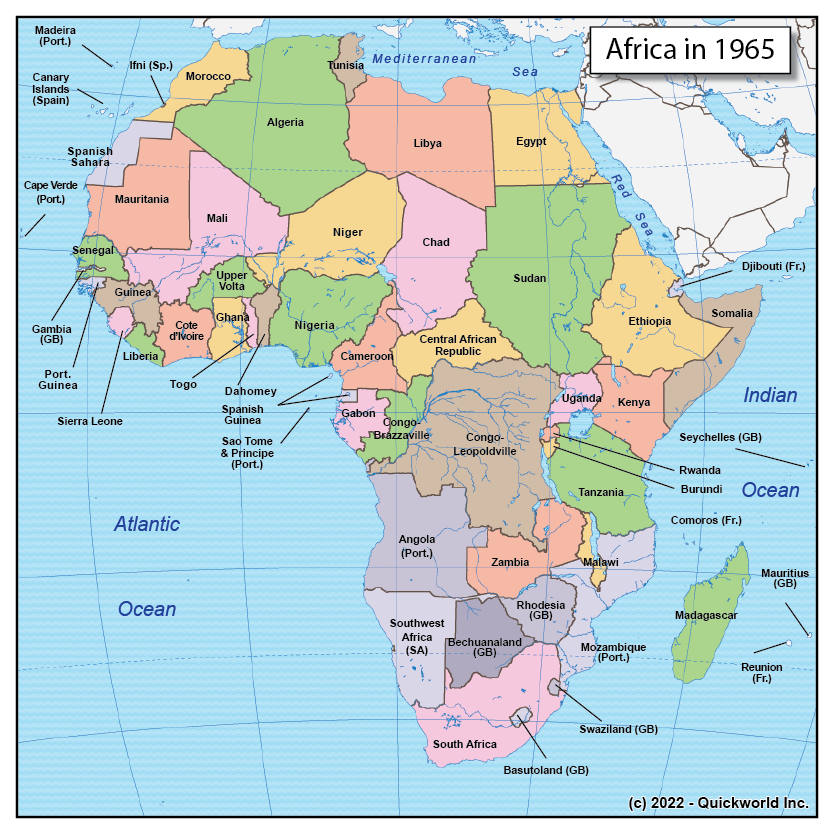This map of Africa in 1965 looks very different from a similar map twenty years earlier, at the end of World War II. The new World order that emerged in 1948 called for the decolonization of the African continent and by the mid 1960s, most of the former possessions of Britain, France, Italy and Germany had become independent nations.
Major exceptions to this involve the possessions of Spain and Portugal. These countries, being ruled by autocratic governments until the mid seventies, had not relinquished their African possessions yet. Also, in Southern Africa, the United Kingdom had not yet granted independence to its protectorates of Bechuanaland, Swaziland and Basutoland. The European minority of Rhodesia declared secession, a situation that was only resolved in the 1980s with the creation of Zimbabwe. Meanwhile, Apartheid South Africa still controlled its neighbour, the former German Southwestern Africa. It was the last African territory to gain independence from its colonial power, as Namibia, in 1990.
Finally, two tiny territories, the Gambia in the West and Djibouti in the East, formed the remnants of the once formidable British and French colonial empires. They were also about to reach full sovereignty.
Africa in 1965


